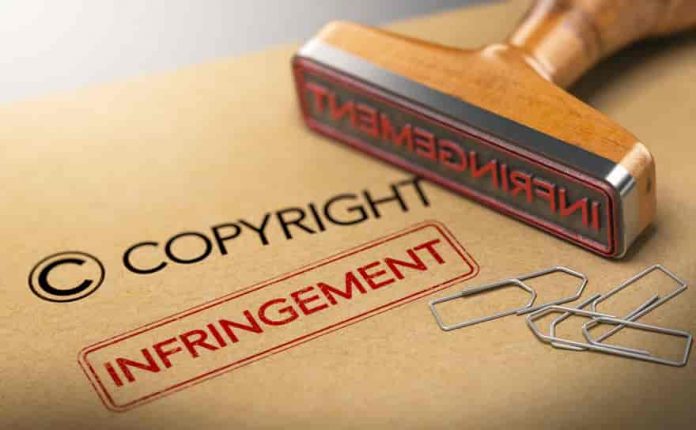This article is written by Ananya Singh, pursuing a Diploma in Intellectual Property, Media, and Entertainment Laws from Lawsikho.com.
Table of Contents
Introduction
With the rise of creating and owning the intellectual property in the contemporary world, intellectual property rights (IPR) came into being to protect the original work created by authors/creators. One of the subsets of IPR is copyright. It is covered under the Copyright Act, 1957 (the Act). The Act provides protection to such creations from being infringed by any person(s), other than the creator, that exploits such work without gaining the explicit permission of the creator themselves. This kind of protection also fosters the environment of creativity by encouraging current and potential creators to keep creating in future. As these laws enable an author/creator to restrict and/or refrain others from using their original work which may hamper their goodwill and reputation and/or gain monetary benefit out of their original work. If the infringer does not comply by ceasing to infringe various civil and criminal liabilities can be imposed on it under the Act, and civil and criminal remedies are also made available to the creator whose work has been infringed. For example, the famous Netflix show ‘Sacred Games’ could not have been created without the explicit permission of the book author Vikram Chandra. Had Netflix proceeded without his permission they would have infringed his copyright and Vikram Chandra could have easily sued them for infringement.
With this in mind, in this article, I will be discussing criminal liabilities envisaged in the Act. Since it has been rightly acknowledged by the legislators that Copyright infringement is not just limited to loss of monetary value and demanding damages through a civil suit is barely enough, and therefore, the criminalization of copyright infringement is more than necessary to prevent loss of credibility, reputation, goodwill of an organization from literal theft. The criminal sanctions not only provide an exemption from impunity but also act as a deterrence.
What is copyright and what constitutes copyright infringement?
The World Intellectual Property Organization (WIPO) defines copyright as a legal term that describes the rights that authors/creators have in their artistic and literary “works”. Works as used here “range from books, music, paintings, sculpture, and films to computer programs, databases, advertisements, maps, and technical drawings.”
Under Indian copyright laws, there are certain exclusive rights that are vested in the copyright owner, that is, “the right to right to reproduce, distribute, display or perform the protected work, or to make derivative works.”
Broadly speaking, copyright infringement happens when any of the following acts occur:
- Using the exclusive rights vested in the copyright owner either in relation to the whole copyright work or a substantial part of the copyrighted work without getting authorization for the same from such copyright owner.
- Deriving profit by providing a place to be used for infringing purposes.
- Trading and/or importing infringing copies of a copyrighted work which includes displaying and/or distributing such work.
For all the above-mentioned acts there are criminal liabilities that are imposed on the infringer via the Act. Correspondingly, there are criminal remedies as well in the Act that are provided to the rightful owner of such copyright works. These criminal remedies include fines, imprisonment, seizing infringing copies and delivering infringing copies to the rightful owner.
Notably, the time limit for filing a suit for damages is three years from the date of such copyright infringement taking place. Moreover, vicarious liability and contributory liability also amount to copyright infringement, even though they are not specifically mentioned in the Act, but there are numerous case laws that provide for the same. Moreover, the burden of proof in such cases is always on the prosecution. It means “the presence of knowledge on the part of the accused prior to infringement must be proved by the prosecution for exercising the criminal remedy.”
Criminal copyright provisions under the Copyright Act, 1957
Sections 63 to 70 under Chapter 13 of the Act provide for the offences relating to copyright infringement. The principle penal provisions under the chapter are as follows:
1. Section 63: It states that when a person knowingly infringes or abets copyrighted work or any of the neighbouring rights under the Act (such as performer rights, moral rights and broadcast reproduction rights) he/she/they can be imprisoned for a minimum of six months and a maximum term of three years and can be fined between Rs. 50,000 to Rs. 3,00,000.
2. Section 63A provides for an enhanced penalty for second or subsequent convictions with increased imprisonment from one to three years and a fine ranging from Rs.1,00,000 to Rs. 2,00,000. However, if such infringement is not made for the purposes of gain in trade and business, the courts can reduce the sentence to less than one year and a fine of less than Rs.1,00,000 by providing adequate and special reasons for the same.
It is important to note that criminal proceedings in such instances do not entitle the copyright owner to get an injunction, that is, “if a convict infringer repeats the infringement the owner will have to initiate a fresh proceeding. So, in such cases, it is advisable to initiate criminal as well as civil proceedings simultaneously if the stakes are very high.”
3. Section 65A states that circumvent any of the effective protective technological measures that can be applied to any of the rights conferred under the Act. Pertaining to copyright, performance rights are punishable with imprisonment of a maximum of two years and payment of a fine.
4. Section 65 B states that removal or alteration of “rights management information” without authorization is punishable with imprisonment of a maximum of two years and payment of a fine. Such removal or alteration includes knowingly distributing, broadcasting or communicating to the public copies of work without authority.
Sections 65A and 65B were inserted via the Copyright (Amendment) Act, 2012 can only be punishable by applying criminal remedies. These provisions have purposely been drafted in a very preliminary fashion “and a lot of scope has been left for judicial creativity so that it can be adapted to Indian conditions.”
i. Other provisions under Chapter 13 include penalties for offences like possessing or making plates to make infringing copies of works (Section 65), using infringing copies of a computer program (Section 63B) and making false entries in the Register of Copyrights (Section 67).
(Note: The above-mentioned provisions and the remedies thereof effectively apply to electronic and digital media, that is, the internet in the same way as it applies to traditional media.)
ii. Section 64(1) states that any police officer not below the rank of sub-inspector may exercise the power to seize infringing copies of work without a warrant. The offence under this section is considered a cognizable and non-bailable offence. Section 64(2) provides safeguards to the person against whom such seizure has taken place to make an application to the Magistrate within 15 days of such seizure for restoring the seized copies. This provision does not facilitate or permit infringement of any manner by the person who has been accused to have committed infringement.
Relevant case laws
Krishika Lulla & Ors. vs. Shyam Vithalrao Devkatta & Anr
In the landmark case of Krishika Lulla & Ors. Vs Shyam Vithalrao Devkatta & Another, which is considered to have set a standard relating to infringement in film titles and plotlines, also famously known as the “Desi Boys Case”, the plaintiff authored a story titled ‘Desi Boys’ and registered the synopsis with the Film Writer’s Association. He forwarded the synopsis to his acquaintances subsequently. Later, he came across the trailer and promos of the movie titled “Desi Boyz”. Since he understood that he could not allege infringement over his idea or story under copyright law, he filed an FIR for the copyright infringement of the title ‘Desi Boys’ under Section 482 of Criminal Procedure Code, Section 63 of the Act and Section 420 of Indian Penal Code. The issue which arose under this case, was whether a literary work’s title on a standalone basis is a copyrighted work that is capable of being infringed under the copyright law. The Supreme Court rejected the notion of the title of a film constituting a copyright ‘work’ to begin with in order to qualify for infringement. The title of the film does not fall within the ambit of literary work.
Cheria P Joseph vs. Prabhakaran
In the case of Cheria P Joseph vs. Prabhakaran, it was held that “clear and cogent proof of knowledge is necessary to establish the commission of an offence.” Moreover, a criminal court will not give a decision relating to the issue of infringement if the same is lying with the civil court for final decision. Here, the complainant alleged that certain extracts of the accused’s book in Malayalam were translations of the book complainant book and “that they were translated and kept for sale without his permission or knowledge and the accused by so doing has infringed his copyright in those books thereby committing an offence punishable under Section 63 of the Act.”
Conclusion and analysis
The criminal liabilities coupled with criminal sanctions under the Act is a step taken in the right direction, especially in the light of changes brought in by the Copyright (Amendment) Act, 2012. The legislative intent behind the criminal sanctions is to punish offences of particular gravity, accordingly with the help of varied terms of imprisonment and fines, and by orders of seizure and delivering infringing copies to the rightful owner, depending on the seriousness of the crime. These provisions also serve as a deterrent as they not only punish but also aim to prevent such infringements.
Reference
- https://www.wipo.int/copyright/en/https://www.indiafilings.com/learn/copyright-infringement-in-india/
- https://www.lexology.com/library/detail.aspx?g=96a0fc1e-d8de-4efe-9f7b-d9ed17752bc4
- Mangal, S., 2016. The Incompatibility Between Copyright Infringement and Criminal Sanctions. Postgraduate. National Law University Delhi (India)
- http://www.legalserviceindia.com/articles/In_Copy.html
Students of Lawsikho courses regularly produce writing assignments and work on practical exercises as a part of their coursework and develop themselves in real-life practical skills.
LawSikho has created a telegram group for exchanging legal knowledge, referrals, and various opportunities. You can click on this link and join:
 Serato DJ Crack 2025Serato DJ PRO Crack
Serato DJ Crack 2025Serato DJ PRO Crack











 Allow notifications
Allow notifications


